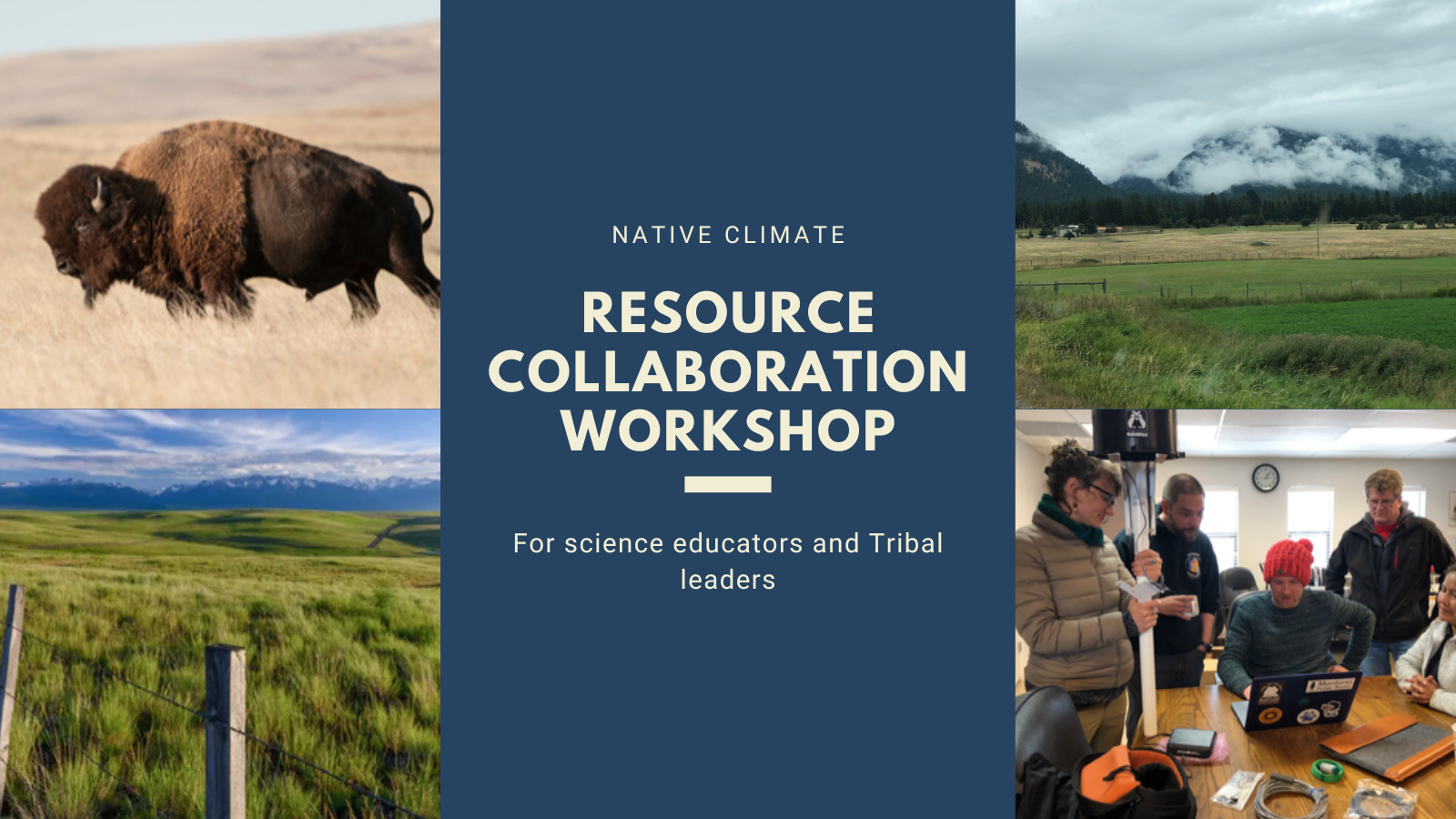
Select Page

Saturday 12/16 9:30-3:00 @ SKC
Five science educators and five tribal leaders from the Flathead region
To provide the knowledge and opportunity for educators to partner with tribal leaders to create education resources focused on climate change awareness and action. Educators will provide grade-level science education knowledge, and tribal leaders will provide cultural context and traditional ecological knowledge. Resources will be tested in the educators’ classrooms and made available on the Native Climate website. https://native-climate.com/education/
9:30-10:30 – Examples of Climate Change activities and intro to NGSS (led by Ileah Kirchoff)
10:30-11:30 – Techniques for Adapting Lessons to be culturally relevant, example lessons from website (led by Crystal Miller)
11:30-12:00 – Lunch
12:00-1:30 – Group Brainstorm Session – Discuss each educator’s upcoming standard and brainstorm ideas together as a group (both educators and cultural specialists)
1:00-3:00 – Work time – Educators create the activity they decided on during brainstorm, cultural specialists circulate and provide support
The Native Climate education group will coordinate a Community of Practice (CoP) of K-12 teachers and informal educators across the Intermountain West. We will advance the ways that educators and education partners can do place-based learning to support climate resilience at the local and regional level.
Our long-term goals are to work collaboratively with educators and tribal leaders to gather and share climate education resources. Together, we will advance our ability to adapt these resources to be place-based and culturally relevant to Native communities. Place-based education integrates specifics of a region into a lesson. Ideally, place-based education has the following components:
If you are interested in being involved, reach out to Ileah Kirchoff over email [email protected]